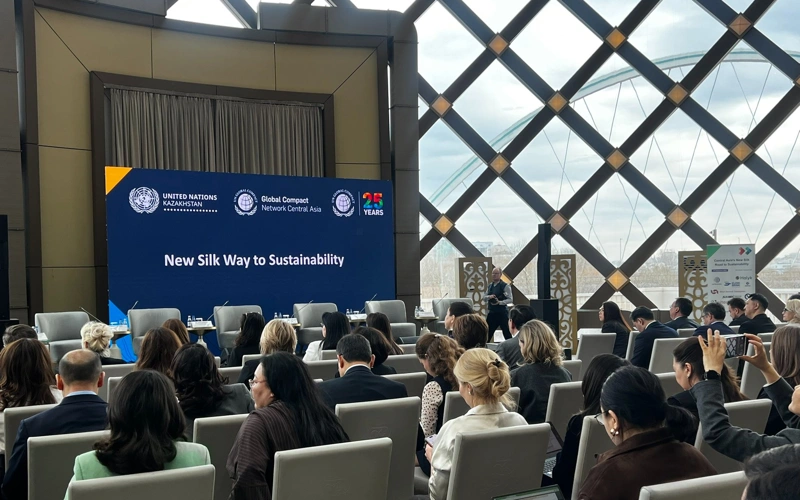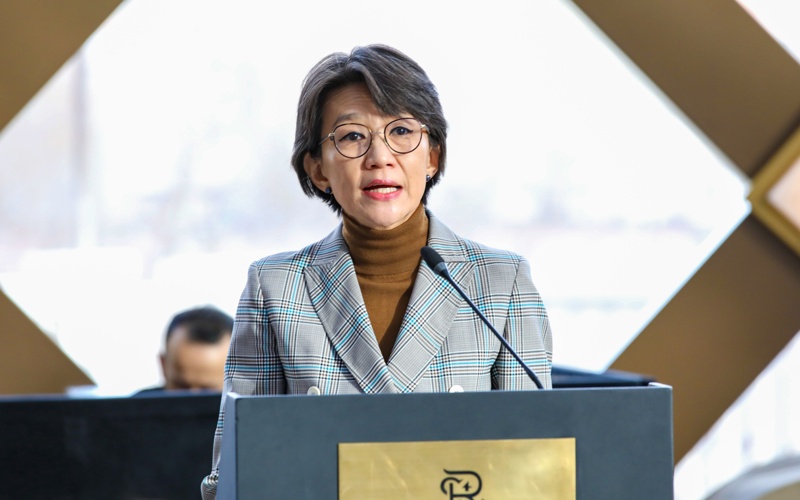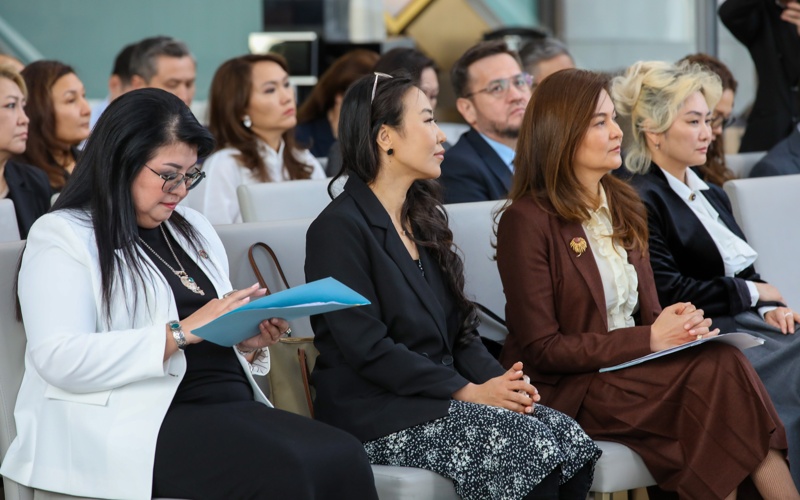Central Asia forum spotlights private sectors rising role in sustainability
The forum titled “Central Asia: The New Silk Road to Sustainable Development” gathered business leaders, government officials, and international partners in Astana to discuss how the region can intensify cooperation and accelerate progress toward global development goals, Qazinform News Agency correspondent reports.

The event, organized by the United Nations Global Compact Network Central Asia together with the United Nations in Kazakhstan, built on recent debates at the United Nations General Assembly and on outcomes of regional business dialogues.
Participants examined how private companies can promote innovation, cleaner production, and more inclusive economic models while working in closer partnership with public institutions. The forum highlighted the rising influence of private companies in advancing sustainable practices across Central Asia.

The United Nations Resident Coordinator in Kazakhstan, Radnaragcha Sarango, noted that the private sector now shapes both economic and environmental outcomes in ways that directly affect the success of the global development agenda.
“The private sector is a critical driver of innovation, job creation, sustainable supply chains, and climate resilient growth, and must align its strategies and investments with the 2030 agenda because the window to deliver is narrowing,” she said.
She added that the forum builds on growing regional momentum following the recent opening of the United Nations Global Compact multi-country office in Almaty, which expands opportunities for coordinated action.

Sarango underscored that the year marks a turning point for cooperation between the United Nations and Kazakhstan with the signing of the new Sustainable Development Cooperation Framework for the period from 2026 to 2030. The document sets shared priorities in areas that range from strong institutions to social cohesion.
“We now have four outcome areas under this new cooperation framework. These include efforts to empower people, build a resilient and inclusive economy, ensure a sustainable environment, and strengthen social cohesion,” she said.

She emphasized that progress across all these areas depends on deeper engagement with private companies, especially at a moment when Central Asia is facing rapid technological change, demographic shifts, climate stress, and growing demand for clean energy.
“Central Asia is at a pivotal moment shaped by technological change, demographic shifts, deeper economic interconnection, climate risks, water scarcity, energy transition, and labor market pressure. Addressing these challenges requires a regional perspective and partnership across sectors,” Sarango noted.
Earlier, Qazinform News Agency reported that Kazakhstan and UN Agencies plan joint projects for sustainable growth.
